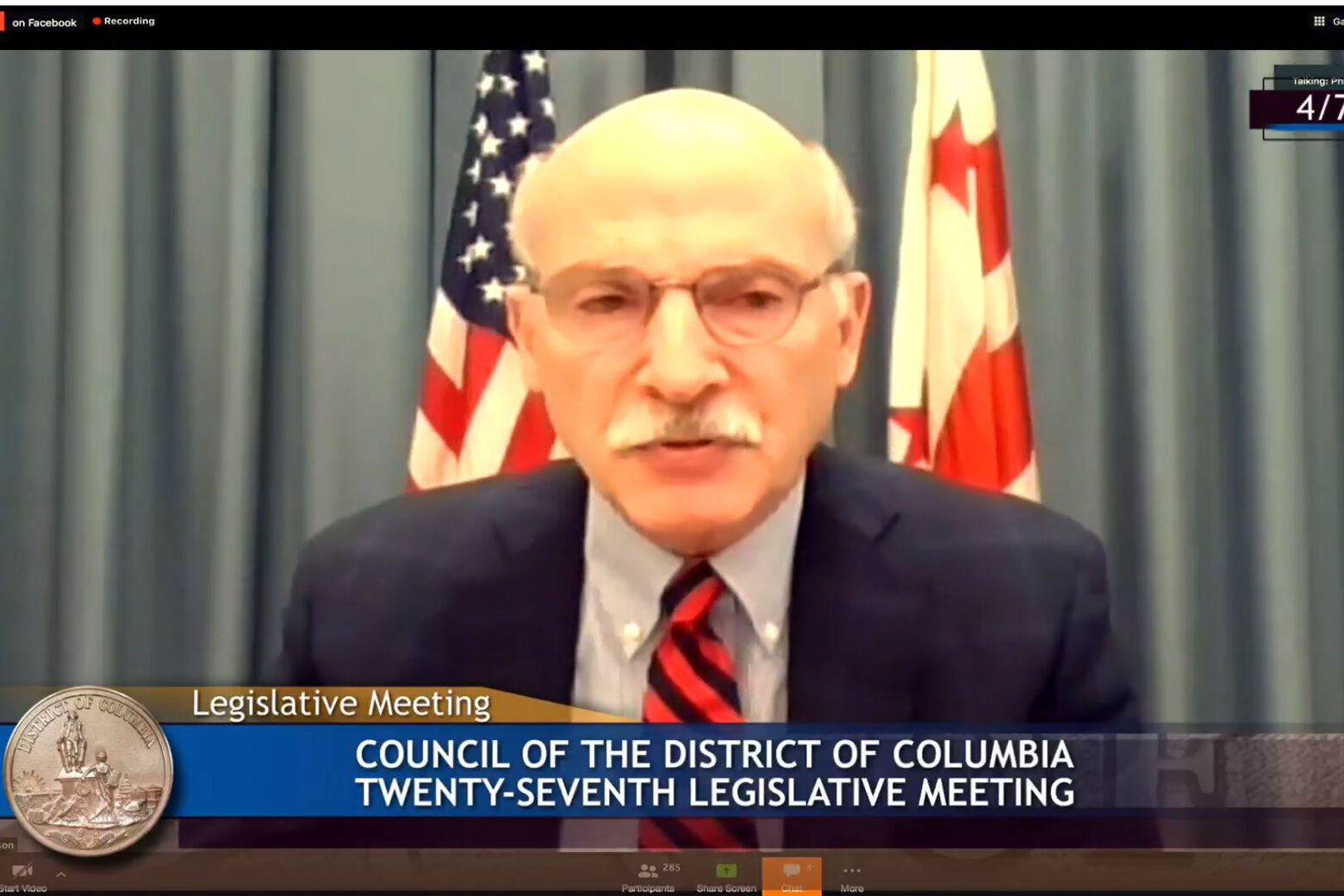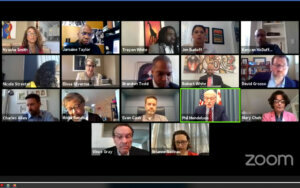
Meeting remotely for the first time in its 45-year history, the D.C. Council on Tuesday unanimously passed its second emergency COVID-19 relief bill, a measure that establishes a rent freeze and mortgage payment deferrals, an expansion of unemployment insurance and more.
The COVID-19 Response Supplemental Emergency Amendment Act of 2020 contains provisions to cushion the blow of the coronavirus health crisis on D.C. residents:
- Rents are frozen across the District, not only in rent-controlled homes;
- Mortgage companies are required to offer payment deferrals of up to 90 days;
- Protections against utility shutoffs are expanded to include cable and telecommunications service;
- Debt-collection lawsuits and the seizures of cars and other property are prohibited;
- The definition of employment, for the purposes of collecting unemployment insurance, has been expanded to include self-employment, gig workers, those seeking part-time work and others “who otherwise would not qualify”;
- Mayor Muriel Bowser has been given the authority to extend her emergency orders for a total of 90 days, ending in mid-June;
- Chief Financial Officer Jeff DeWitt can now borrow short-term up to $500 million to close what’s expected to be a $600 million loss of revenue due to the economic impact of the pandemic;
- A $25 million grant program has been established for D.C. hospitals to buy equipment, hire staff and build temporary hospitals (Council Chairman Phil Mendelson said the District expects to get that money back from federal relief efforts);
- Every voter in the June 2 primary and the Ward 2 special election on June 16 will get an application for an absentee ballot in the mail, with return postage paid.
The bill also allows for up to 54 days of good-time credits for felons, and provides the possibility for compassionate release for inmates over age 60 who have served at least 25 years.
It also waives the requirements for minimum classroom time and community service time for D.C. high school seniors.
- Sign up for news alerts from WTOP
- The latest around the world
- WTOP coronavirus poll: End of tunnel in sight, despite furloughs, hour and pay cuts
- DC neighbors feed hospital workers, support local businesses
- Coronavirus test results in D.C., Maryland and Virginia
- Coronavirus FAQ: What you need to know
Though the bill passed unanimously, several members had problems with the bill, particularly the fact that there are no provisions for undocumented workers.
One provision, which was struck from the bill, would have provided an unemployment benefits process for undocumented workers, which was estimated to have cost $33 million; another created a microgrant program for residents who don’t qualify for unemployment insurance, who are primarily undocumented. That was estimated to cost $42 million.
At-Large Council member Elissa Silverman criticized the exclusion of undocumented restaurant workers, domestic workers and the construction workers who “literally built this city” in the past 20 years.

She wanted a cash-assistance program similar to what’s been established “right across Western Avenue” in Montgomery County, Maryland, and said Bowser was committed to the idea.
At-Large Council member David Grosso added that he was “disappointed” that the bill “leaves behind workers most in need of assistance.”
Council member Kenyan McDuffie, of Ward 5, called the bill “a consensus bill” that had been worked out in conversations among the council and with Bowser — a package of measures that everyone could agree to and pass quickly, in the interests of continuing to address the crisis.
Mendelson said the council had had “rather energetic discussions” with the mayor about undocumented workers, who are getting “little, if any” of the relief in the bill.
He allowed that not everyone agreed on every provision of the bill — “There are a few matters that the mayor is not enthusiastic about; there are some provisions in here that I don’t like” — but that “people want to see us working together.”
Regarding undocumented residents, he said, “We’re not done with that issue.”
Council member Charles Allen, of Ward 6, said that in the long run, “more residents will be eligible for unemployment insurance this week than last week.”
Council member Trayon White, of Ward 8, pointed out that more than 50,000 unemployment-insurance claims had been filed in D.C. in the past two weeks, compared with 37,720 all of last year.
“This crisis has touched everyone,” White said. “We’ve never seen anything like it before.”
All the members of the council agreed the bill wasn’t the end of the D.C. government’s response to the health crisis.
“We are still not done yet,” said Ward 3 Council member Mary Cheh.
You can read the whole bill on Mendelson’s website.
WTOP’s Jack Moore contributed to this report.








